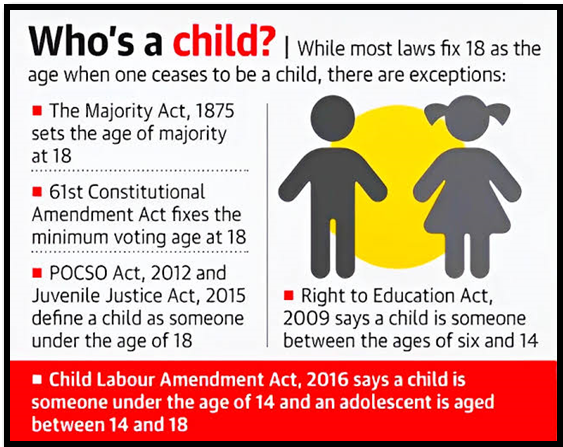POCSO CASES CANNOT BE QUASHED ON SETTLEMENT GROUNDS
Why in the news?
- The Kerala High Court ruled that cases under the Protection of Children from Sexual Offences (POCSO) Act and the Scheduled Castes and Scheduled Tribes (Prevention of Atrocities) Act cannot be quashed merely on grounds of settlement.
About the POCSO Act
- The POCSO Act came into effect on 14th November 2012, following India’s ratification of the UN Convention on the Rights of the Child in 1992.
- It addresses sexual exploitation and abuse of children, defining a child as anyone under 18 years old.
Amendments:
- The Act was amended in 2019 to introduce harsher penalties, including the death penalty, for sexual crimes against children.
- The POCSO Rules, 2020, were also notified.
Key Features
- Gender-Neutral: Recognizes that both boys and girls can be victims of sexual abuse, ensuring non-discriminatory protection.
- Ease of Reporting: Non-reporting of child sexual exploitation is now an offense, increasing general awareness and making it harder to conceal such crimes.
- Explicit Definitions: Introduces new offenses like storing child pornography and provides clear definitions for terms like ‘sexual assault,’ with increased minimum punishments.
About Scheduled Tribes (Prevention of Atrocities) Act
|
Associated Articles:




